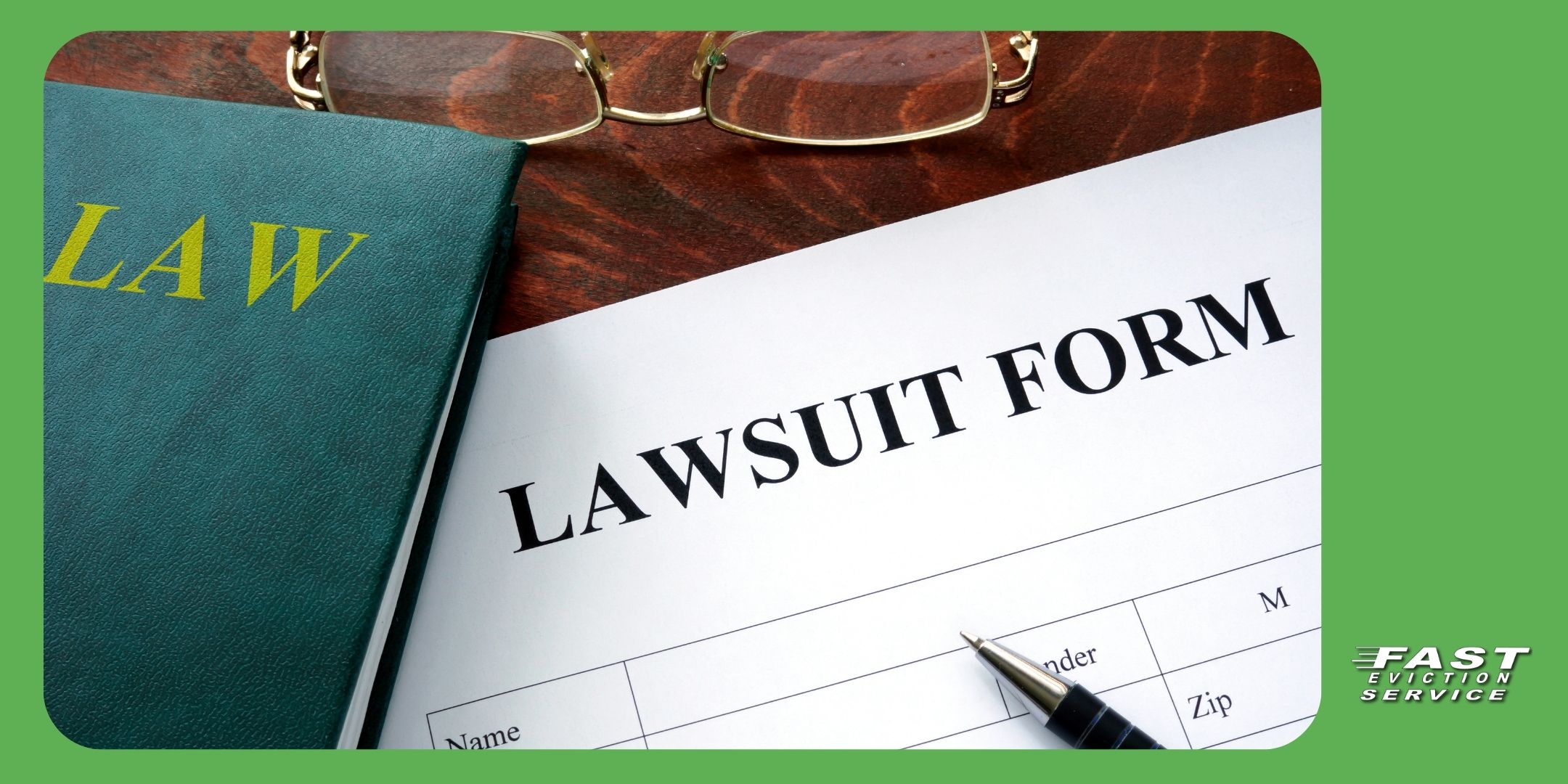Updated 12/24/24
Navigating the complexities of a tenant-landlord relationship can be challenging, especially when tensions escalate to the point where a tenant sues the landlord. Such a scenario can be daunting for landlords, who must quickly grasp their legal obligations and rights. Understanding the reasons behind the lawsuit and preparing an appropriate response are crucial steps in addressing this legal battle. In this blog, we’ll delve into the steps landlords should take when faced with a lawsuit from a tenant, offering insights to help you manage the situation effectively and protect your interests.

When a tenant sues a landlord, it typically stems from disputes over lease agreements, property maintenance issues, or perceived breaches of tenant rights. Recognizing the root cause of the lawsuit can provide a clearer pathway to resolution. For landlords, this situation necessitates a thorough review of the lease agreement and any correspondence or records related to the tenant’s complaints. By understanding the specifics of the tenant’s grievances, landlords can better prepare for the legal process and work towards a fair outcome.
Understanding the Legal Grounds
The first step when a tenant sues a landlord is to understand the legal grounds for the lawsuit. Common reasons include failure to make necessary repairs, breach of contract, unlawful eviction, or violations of health and safety codes. Each of these issues can have serious implications, and landlords must familiarize themselves with local landlord-tenant laws to assess the legitimacy of the tenant’s claims. Consulting with a legal professional can provide clarity and help in formulating a defense strategy.
Gathering Evidence and Documentation
When a tenant sues a landlord, having comprehensive documentation is essential. This includes the lease agreement, repair logs, communication records, and any notices or inspections related to the property. Detailed records can serve as critical evidence to support the landlord’s case, demonstrating efforts to comply with legal and contractual obligations. Proper documentation can also help refute unfounded claims and highlight the landlord’s commitment to maintaining the property and addressing tenant concerns.
Responding to the Lawsuit
Once a tenant sues a landlord, it is imperative to respond promptly and appropriately. Ignoring the lawsuit can result in a default judgment in favor of the tenant. Landlords should file a formal response within the stipulated timeframe, outlining their defense and any counterclaims if applicable. Legal representation is highly recommended to navigate this process effectively. A lawyer can assist in drafting the response, negotiating settlements, and representing the landlord’s interests in court.
Exploring Settlement Options
In many cases, a tenant suing a landlord can be resolved through settlement rather than prolonged litigation. Mediation or negotiation can lead to mutually agreeable solutions, saving time and legal expenses for both parties. Settlement discussions can address the tenant’s concerns and provide compensation or repairs as necessary. A willingness to engage in good faith negotiations can demonstrate the landlord’s commitment to resolving disputes amicably and maintaining a positive landlord-tenant relationship.
Preparing for Court Proceedings
If a settlement cannot be reached and the case proceeds to court, landlords must be well-prepared for the proceedings. This includes organizing all relevant documentation, preparing witness statements, and understanding courtroom protocols. Effective presentation of evidence and a clear articulation of the defense can significantly impact the outcome. Legal counsel can provide valuable guidance throughout the trial, helping landlords present their case effectively and increase their chances of a favorable verdict.
When a tenant sues a landlord, it can be a stressful and complex situation. However, by understanding the legal grounds, gathering comprehensive evidence, responding appropriately, exploring settlement options, and preparing diligently for court, landlords can navigate this challenge more effectively. Proactive and informed action can protect landlords’ interests and contribute to a fair resolution. Remember, the key to managing such disputes lies in maintaining open communication, adhering to legal standards, and seeking professional guidance when needed.



